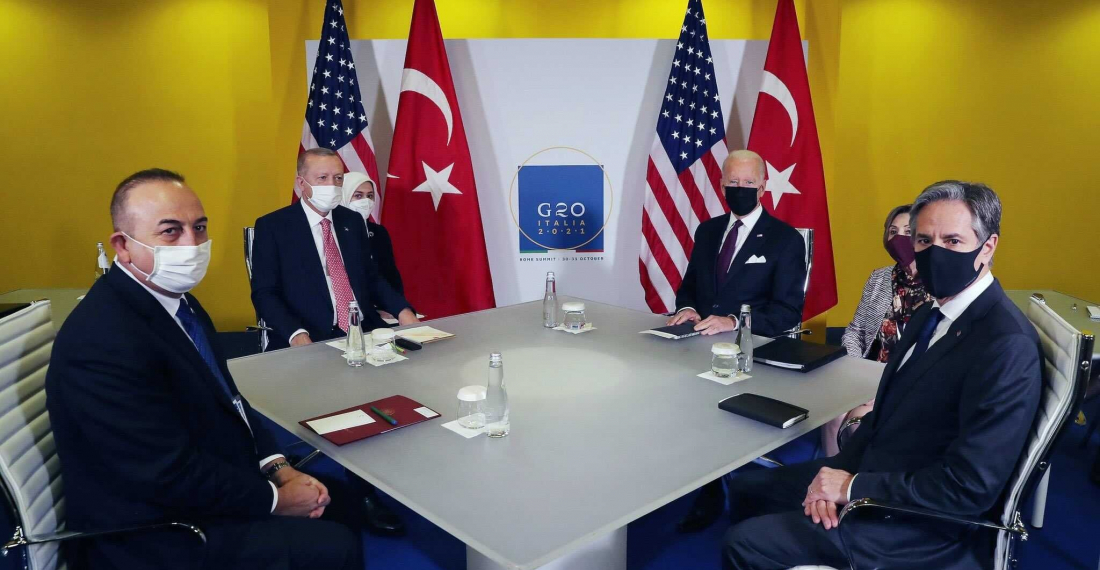The presidents of the United States and Turkey met in Rome on Sunday (31 October), on the margins of the G20 summit which took place in the Italian capital over the weekend.
The two countries are important allies in NATO, but differences have marred relations in recent years, particularly as Turkey has pursued a more assertive foreign policy.
The presidents agreed on the formation of a joint mechanism to strengthen and improve bilateral ties said a according to a statement issued by Turkey's Communications Directorate on Sunday.
Turkish president President Recep Tayyip Erdogan and his U.S. counterpart, Joe Biden held a closed-door meeting which lasted for over an hour during which they discussed the steps to be taken in line with the common perspective to expand the bilateral trade volume, the statement said.
The leaders stressed the importance of the NATO alliance and the strategic partnership, and also expressed satisfaction about mutual steps taken on climate change, it added.
“President Biden underscored his desire to maintain constructive relations, expand areas of cooperation, and manage our disagreements effectively,” a White House statement said.
Biden expressed appreciation for Turkey’s nearly two decades of contributions to the NATO mission in Afghanistan, the statement read.
“President Biden reaffirmed our defense partnership and Turkey’s importance as a NATO Ally, but noted U.S. concerns over Turkey’s possession of the Russian S-400 missile system,” it added.
The two leaders also discussed the political process in Syria, the delivery of humanitarian assistance to Afghans in need, elections in Libya, the situation in the eastern Mediterranean, and diplomatic efforts in the South Caucasus, the statement said.
source: commonspace.eu with Hurriyet Daily News (Istanbul)
photo: The presidents of the United States and Turkey, accompanied by their foreign ministers, met in Italy on 31 October 2021.






